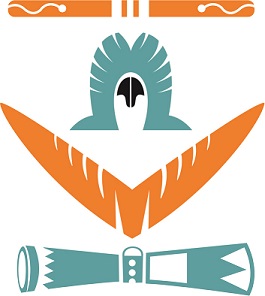Opening doors for indigenous health workers

The skills shortage in the Indigenous health and community sector is plainly visible in the employment pages of most newspapers around the country. Government and the community sector are constantly looking for Indigenous workers to fill vacancies in the health services industry.
Three different but like-minded Queensland organisations are combining with other partners for a Queensland-wide project designed to break down the barriers for Indigenous Health workers and address the skills shortage.
Juwarki Kapu-Lug Ltd, a community-based not-for-profit organisation in Rockhampton, is joining forces with John Pearson Consulting to train up existing or potential Indigenous health workers across the state. The tailored, accredited training is to be delivered under the auspice of Sunshine Coast TAFE. There are a number of barriers preventing a quick and easy solution to the skills shortfall. According to Edward Chubb, CEO of Juwarki Kapu-Lug Ltd, improving access to the necessary qualifications for both existing workers and those wishing to enter the field is a good start to increasing numbers and capacity within the Indigenous Health work force.
In preparation for the project, Mr Chubb said that applications are currently open for 120 places to undertake Certificate IV qualifications in Primary Health and a choice between Alcohol and Other Drugs Work or Mental Health.
Due to encouraging early enrolment numbers, the Australian Government is considering an immediate increase in places. “We’ve already had overwhelming levels of interest, so there’s definitely the desire to take up the opportunity. We have also had very positive feedback from employers,” Edward said, who emphasised that the program is free to both participants and employer organisations. “The key is the dual qualification we are offering. This will allow workers to gain positions in either government or the community sector. It will broaden career potentials and give them options as their career progresses. “For example, a lot of our mob in Rockhampton has only completed Year 10, so many of us don’t have the confidence or the mandatory qualifications for entry into Queensland’s public service. “Queensland Health requires all of its service delivery staff to acquire a primary health care qualifications, but you either had to pay for it yourself, or be in the job to access the qualification, so this was effectively a barrier.”
Mr Chubb said that because the Australian Government is offering this opportunity free-of-charge, and in a flexible, culturally appropriate manner, the project will help to close the gap for Aboriginal and Torres Strait Islanders by providing real employment outcomes. “The project can help develop capacity in communities,” he said. “Attaining recognised qualifications helps develop the community’s confidence. It also increases the individual’s confidence in their ability to do the work. “In addition, the unique training model being used means that Indigenous people are training Indigenous people to provide health care to Indigenous people in the future.”
The training offered will be through flexible delivery, tailored to meet the needs of Indigenous people and communities.
The program, open to both existing health workers and potential workers, starts with a one-week induction in Rockhampton on May 16, and includes six one-week study blocks.